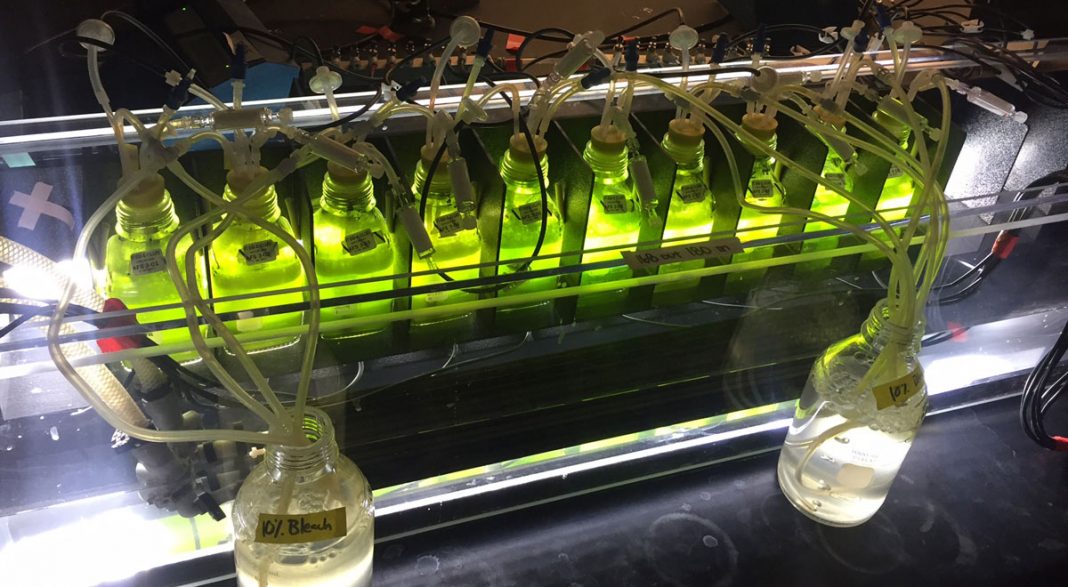Algae, which may surprise you, produces fat, lipids, which can be used as a type of biofuel. If it could be made less expensive than petroleum, the boon for the environment would be terrific. It may also be a boon for ExxonMobil who is investing $300 million into algae research. The challenge to the whole enterprise is getting the algae to produce enough lipids to be bountiful for harvest. However, tampering with the wrong gene may make the small organism unlikely to thrive or be grown outdoors and therefore not of much use.
Recent research from Synthetic Genomics, published in the journal Nature Biotechnology, shows they’ve successfully developed algae that can create two times the amount of lipid and yet be grown like the average algae. This was done by modifying only one genetic part that influenced the copying of other genes while also controlling lipid production.
“Is it enough to replace oil coming out of the ground? No. But if you had to live off of it, you could,” says Craig Venter, Synthetic Genomics’ chairman, and co-founder. “It has a lot further to go to be commercially viable today.”
ExxonMobil, who has partly funded the project since 2009, has called this a breakthrough but agrees much more work is to be done before algae can replace oil. “We’re still in the research phase of this program,” says Vijay Swarup, a vice president at ExxonMobil. “It’s not just doubling lipid production, but it’s understanding why it doubled and how it doubled.”
Craig Venter, who gained fame after challenging the U.S. government in mapping the human genome, founded Synthetic Genome (SGI) in 2005, after being kicked out of Celera Genomics, which he also founded. In that time the company has made a synthetic genome for bacteria and gone on to add their weight to the algae into biofuel problem. However, the latest technological tools, like CRISPR-Cas9, are widely available for many a research team to alter genetic cells.
On the other hand, Oliver Fetzer, CEO of Synthetic Genomics, argues that it’s not just genetic manipulation that is needed. Know what to alter is also important. SGI achieves this by “using very, very modern genomics tools to solve the fundamental problem that has to date made the whole biofuels industry not particularly successful.” Venter adds: “This took eight years of the slog of figuring out how to move things around.”
While there is much more research and the study need to make lipid-producing algae viable as a complete fossil fuel alternative ExxonMobile and SGI remain optimistic. “We have to be aggressively patient,” adds Swarup. “Because we really think we’re onto something.”
More News to Read











